 Courtesy: Shutterstock
Courtesy: Shutterstock
Sanctions are an important foreign policy tool, used especially by the West against its adversaries. Now, these rivals are retaliating with counter-sanctions. Are these effective? How does this impact global politics? Where does India stand in this free-for-all sanctions era?
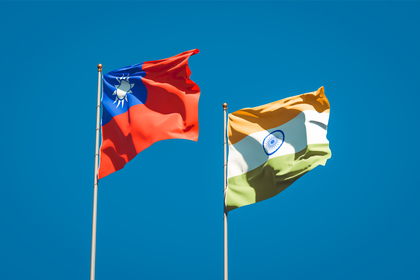 Courtesy: Shutterstock
Courtesy: Shutterstock
Taiwan was one of the few countries to successfully contain COVID-19 during the pandemic. But China's influence led to Taiwan losing its observer status in the World Health Assembly (WHA), the WHO's decision-making body, in 2017, preventing learnings from Taiwan to be implemented. The G7 and Japan have already backed Taiwan’s reinstatement. India can use its chairmanship of the WHA to rally more support and change the status quo.
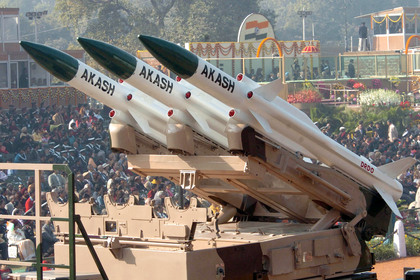 Courtesy: Wikimedia Commons
Courtesy: Wikimedia Commons
To be self-reliant in defense manufacturing and produce the appropriate technology, India must focus on long-term R&D-oriented planning. Recent government initiatives like Make in India and Aatmanirbhar Bharat are bringing the necessary change.
 Courtesy: Shutterstock
Courtesy: Shutterstock
For years, Western countries have used sanctions as a means of economic warfare against their adversaries. Now, China and Russia are utilising the same tactic against the West. The United Nations Security Council is paralysed by differences between the five permanent members, leaving the tools of unilateral sanctions and counter-sanctions to proliferate at the cost of UN-approved multilateral sanctions.
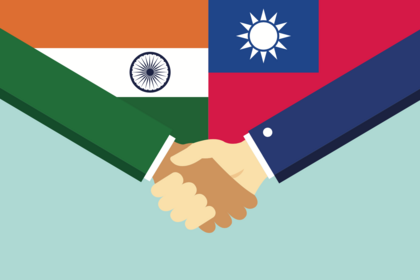 Courtesy: Shutterstock
Courtesy: Shutterstock
India and Taiwan face a common cyber threat from China – an extension of their respective territorial disputes with Beijing. This makes it essential for New Delhi and Taipei to initiate informal cybersecurity cooperation. They can begin by focusing on cyberattack attribution, critical infrastructure protection and cyber hygiene.
 Courtesy: Shutterstock
Courtesy: Shutterstock
The idea of a U.S.-India-Israel trilateral cooperation is not unknown, but rather unfulfilled. Diaspora associations have repeatedly raised the idea of a technology triangle amongst the three countries, and in 2020, the three countries explored a potential cooperation in 5G communication technology. On these terms, taking advantage of the bilateral synergies and establishing a start-up corridor between Tel Aviv, Silicon Valley, and Bengaluru, can launch this partnership.
 Courtesy: Twitter | @ColPipe
Courtesy: Twitter | @ColPipe
The ransomware attack on Colonial Pipeline in the U.S. has underlined the importance of cyber security in critical infrastructure. India has not escaped the brunt of a recent global surge in cyber attacks. Though New Delhi has taken steps to protect critical infrastructure, problems in information sharing of threat vulnerabilities impede an effective response.
 Courtesy: Middle East Institute
Courtesy: Middle East Institute
The American decision to withdraw troops from Afghanistan will strengthen the Afghan Taliban and possibly ensure its return to Kabul. This has implications for India’s security and economic interests in Afghanistan. India must step up its game by showing willingness to talk to the Taliban, while simultaneously expanding training assistance to the Afghan security forces.
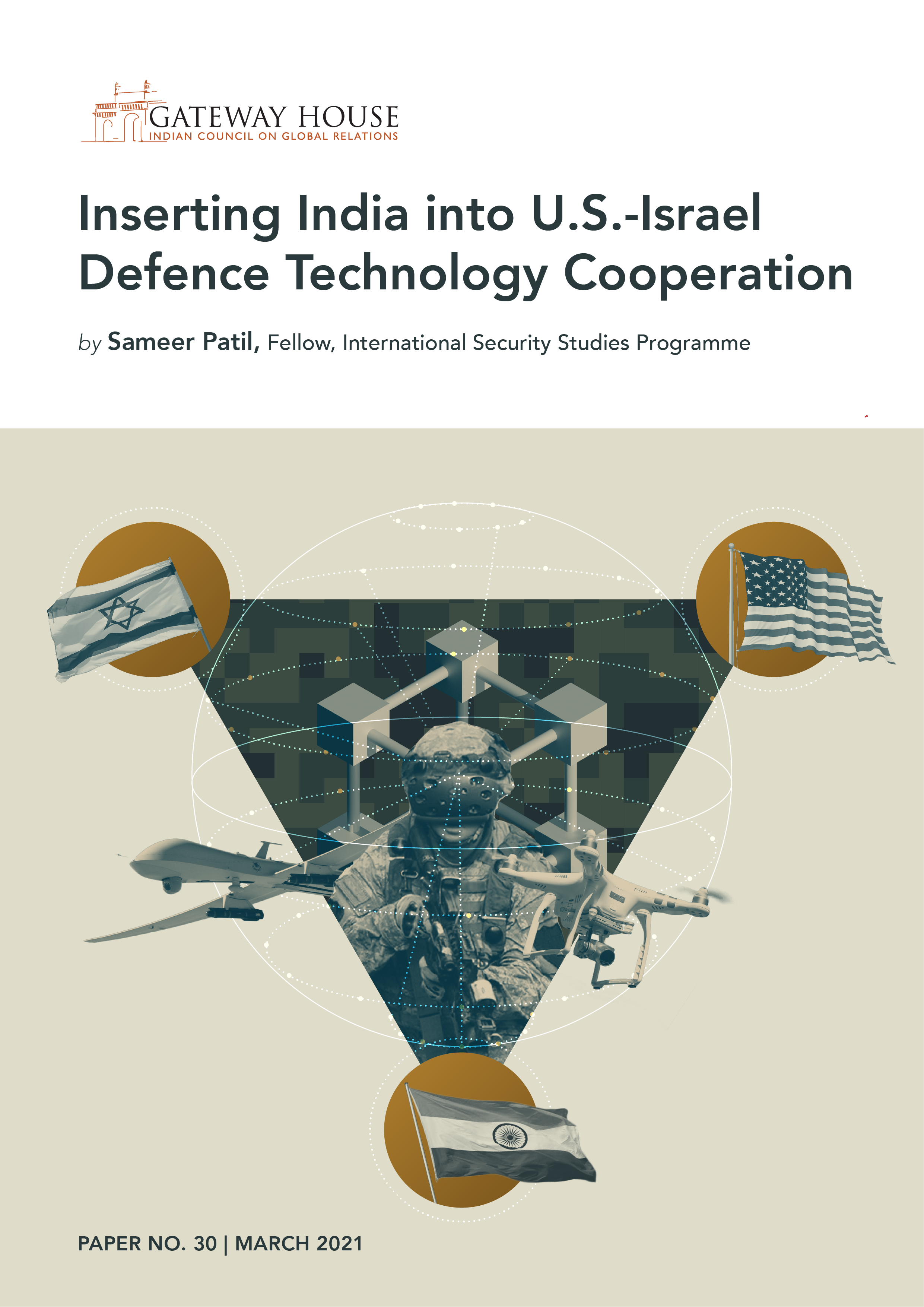 Courtesy: Gateway House
Courtesy: Gateway House
Israel and the U.S. have become India's top arms suppliers, with companies from these countries participating in the 'Make in India' initiative. These robust defence partnerships can be elevated, by inserting India into the U.S.-Israel defence technology cooperation corridor. What are the geopolitical and domestic limitations that India must tackle in this effort? What benefit will the U.S. and Israel gain from a partnership with India? This paper studies the U.S.-Israel defence technology corridor, and suggests potential collaborations for India. It recommends the three innovation hubs, Silicon Valley, Tel Aviv and Bengaluru, coming together to maximise their respective strengths and declared national technology priorities.
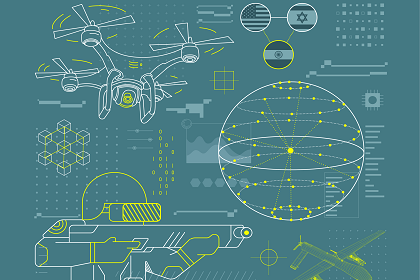 Courtesy: Debarpan Das
Courtesy: Debarpan Das
Following the lead set by the U.S. and Israel, India is now tapping its domestic start-up ecosystem for technological innovation and self-reliance in defence. Indian entrepreneurs are developing niche technologies which will boost the Indian military’s combat capabilities. They are also enabling the much-needed commercial synergy with Silicon Valley venture firms.












